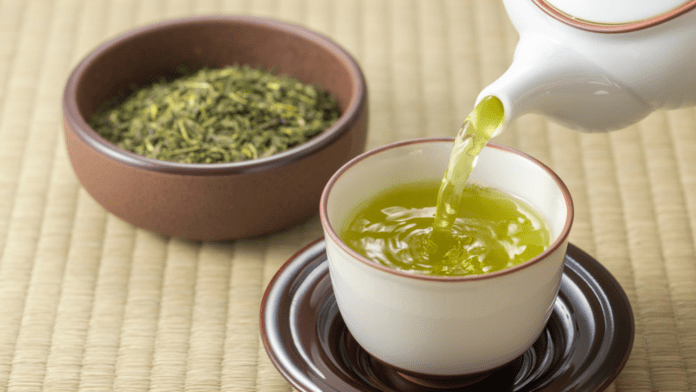In today’s fast-paced and competitive world, maintaining focus and concentration has become increasingly challenging. Whether it’s studying for exams, completing work assignments, or pursuing personal goals, enhancing cognitive abilities is a common pursuit. While there are numerous strategies and techniques available, one natural and promising option is green tea. Green tea, derived from the leaves of Camellia sinensis, has been consumed for centuries and is renowned for its numerous health benefits. Recent scientific studies have shed light on its potential to improve concentration and cognitive function. In this article, we will explore the various components of green tea that contribute to these cognitive benefits and delve into the mechanisms by which it enhances concentration. Moreover, we will discuss practical tips on incorporating green tea into your daily routine for optimal results.
The Components of Green Tea:
- Caffeine: Green tea contains a moderate amount of caffeine, a natural stimulant that promotes alertness and concentration. However, unlike coffee, green tea provides a milder and more sustained caffeine boost, preventing the jitters and crashes associated with excessive coffee consumption.
- L-Theanine: Green tea is rich in L-theanine, an amino acid that has been shown to have a calming effect on the brain. L-theanine helps to counterbalance the stimulating effects of caffeine, leading to a state of relaxed focus and improved concentration.
- Epigallocatechin Gallate (EGCG): EGCG is a potent antioxidant found in green tea. It has been found to protect brain cells from oxidative stress and reduce inflammation, thereby promoting brain health and cognitive function.
Mechanisms of Green Tea’s Cognitive Benefits:
- Synergistic Interaction of Caffeine and L-Theanine: The combination of caffeine and L-theanine in green tea leads to a unique interaction that enhances cognitive function. While caffeine promotes wakefulness and alertness, L-theanine induces a state of relaxation without causing drowsiness. This combination results in increased alpha brainwave activity, which is associated with improved attention and focus.
- Increased Dopamine and Serotonin Levels: Green tea has been found to increase dopamine and serotonin levels in the brain. These neurotransmitters play crucial roles in regulating mood, motivation, and attention. By modulating these neurotransmitters, green tea may enhance concentration and cognitive performance.
- Neuroprotective Effects: The high concentration of EGCG in green tea provides neuroprotective effects by combating oxidative stress and inflammation. By shielding brain cells from damage, green tea may help preserve cognitive function and prevent age-related cognitive decline.
- Improved Blood Flow and Oxygenation: Some studies suggest that green tea may enhance cerebral blood flow and oxygen delivery to the brain. This improved circulation can enhance cognitive abilities and support optimal brain function.
Practical Tips for Incorporating Green Tea into Your Routine:
- Choosing the Right Green Tea: Opt for high-quality loose-leaf green tea or tea bags from reputable sources to ensure maximum freshness and potency. Experiment with different varieties such as Sencha, Matcha, or Dragon Well to find the flavor profile that suits you best.
- Optimal Brewing Techniques: To extract the maximum benefits from green tea, it is essential to brew it correctly. Use water that is around 175°F (80°C) to preserve the delicate flavors and avoid bitterness. Steep the tea for 2-3 minutes to achieve the desired taste and caffeine content.
- Timing and Frequency: Consider consuming green tea strategically to enhance concentration during specific activities. Consuming a cup of green tea 30-45 minutes before studying or engaging in mentally demanding tasks can optimize its effects. However, be mindful of personal caffeine sensitivity and avoid consuming green tea too close to bedtime.
- Pairing Green Tea with Healthy Snacks: Enhance the cognitive benefits of green tea by pairing it with brain-boosting snacks such as nuts, berries, or dark chocolate. These foods provide essential nutrients that support brain function and can further enhance concentration.
- Mindful Consumption: To fully experience the benefits of green tea, cultivate a mindful approach to its consumption. Slow down, savor the aroma and taste, and create a tranquil environment to complement the calming effects of the tea.
Final Thoughts:
Green tea offers a natural and effective way to improve concentration and enhance cognitive function. Its unique combination of caffeine, L-theanine, and other beneficial compounds makes it a promising choice for those seeking to study smarter, not harder. By promoting a state of relaxed focus, increasing neurotransmitter levels, and providing neuroprotective effects, green tea can support optimal brain health and cognitive performance. Incorporating green tea into your daily routine, alongside other healthy lifestyle practices, can yield long-term benefits for concentration and overall well-being. However, it is important to remember that individual responses may vary, and moderation is key. Consultation with a healthcare professional is advised, especially if you have any underlying health conditions or are taking medications.
So, the next time you sit down to study or tackle a challenging task, consider reaching for a cup of green tea and experience the benefits firsthand.





